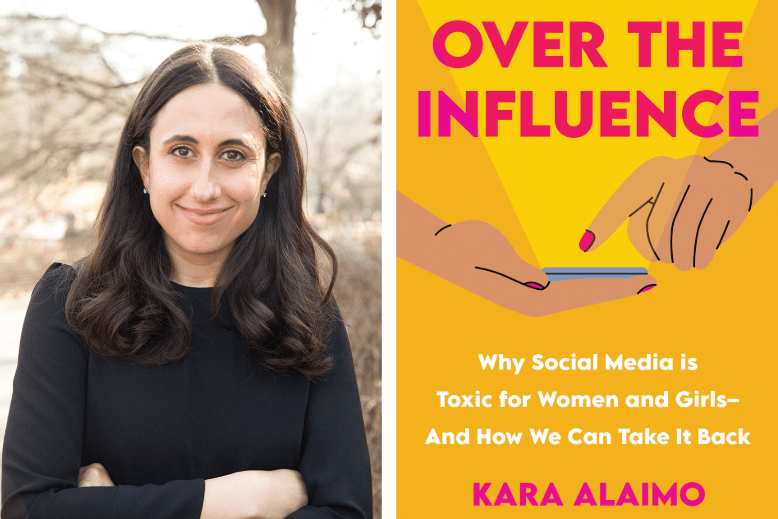
In her new book, Over the Influence: Why Social Media is Toxic for Women and Girls—and How We Can Take it Back, Kara Alaimo talks about the pernicious influence of cell phones and social media in the lives of young people, especially girls. Alaimo, 41, is an associate professor of communication at Fairleigh Dickinson University and frequent CNN commentator. She grew up in Somerset County and is now raising her children there. Her book was published in March by Alcove Press.
Why is social media so harmful for young girls?
Young girls tend to use visually oriented apps like Instagram, which are particularly detrimental for their mental health because they put the focus on people’s bodies and appearances. Girls quickly realize that the easiest way to rack up likes is to make themselves look “hot” in pictures. So we see girls sexualizing themselves at shockingly young ages, and this is absolutely terrible for their mental health. One woman I interviewed told me she got her eating disorder on from going on Instagram as a teenager, and she continues to struggle with anorexia as a young woman.
Girls value relationships and are especially vulnerable to the feelings of exclusion that come with social apps, like when they see their friends all together on Snapchat, but weren’t invited. They’re left feeling like their relationships aren’t strong and their lives aren’t as exciting as their peers. Because of course, everyone posts the filtered, glamorized versions of their lives online. This is particularly rough for young girls because, during puberty, their confidence really plummets.
Why do you say that women and girls are less safe today than they were just a few years ago?
Dating apps are far more dangerous than any of us realize. One study found that 31 percent of women who’d used dating apps said they’d been sexually assaulted by someone they met there. Then there’s “sextortion,” where a man who meets a woman on a dating app convinces her to send a racy image and then texts her that if she doesn’t Venmo him $25,000, he will put the image all over the internet. There’s also catfishers. These days, they’re often part of a global crime syndicate where men are lured with the promise of a job then held practically as slaves and forced to catfish women. They’ll establish an emotional relationship and then say, “I want to fly to see you, but my credit card was just stolen. Can you put the flight on your credit card and I’ll pay you back when I get there?”
What can parents do to protect their daughters?
Delay getting your daughter a smartphone as long as you can; 14 rather than 12 can make a huge impact on her life. Then, let her do things offline; often she’ll be safer hanging out with friends at the mall than in her bedroom where she might be connecting with a predator on Instagram. And if you have your kid involved in extracurricular activities, it will reduce her screen time and help her build the relationships that are so essential, particularly in the teen years.
I recommend parents go on TikTok with their kids. If you start watching something that interests your kid, she’ll get more of that content. And it’s important for parents to know what’s trending there so they can talk to their kids about it. Lately, it’s been “Sephora Kids” and “Botox Babies” telling 10-year-olds they need makeup and 20-year-olds they need Botox. Parents can talk about why we shouldn’t judge anyone, especially ourselves, for our appearance.
Don’t ever threaten to take your daughter’s phone away. Too often, girls who get in trouble online don’t tell their parents for fear they’ll lose phone privileges. Make sure your kid knows that, regardless of what happens online, they can come to you for help.
No one knows New Jersey like we do. Sign up for one of our free newsletters here. Want a print magazine mailed to you? Purchase an issue from our online store.



